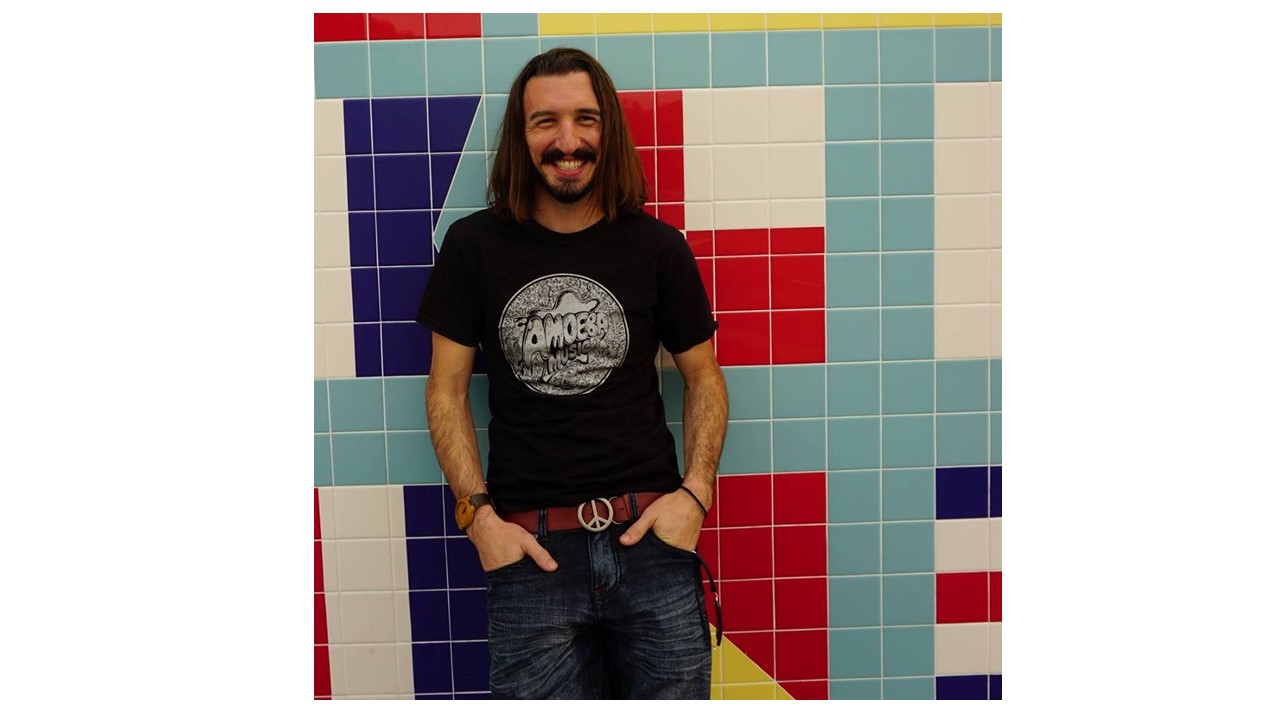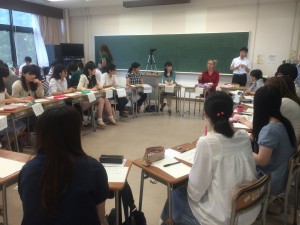- The University of Hawai'i Uehiro Academy for Philosophy and Ethics in Education
The Uehiro Academy for Philosophy and Ethics in Education is located in the University of Hawai‘i at Mānoa’s College of Arts & Humanities and supports research and education related to the preparation, support, and sustaining of educators, researchers and students who are developing intellectually safe communities of philosophical inquiry in their classrooms and schools. The Uehiro Academy serves students and teachers from Hawaiʻi, the U.S., Japan, and other international locations.
Vision: Education for the purpose of creating intellectually responsible communities.
Mission: p4c Hawai’i is dedicated to preparing, supporting and sustaining educators, researchers and students who engage or are interested in engaging in p4c worldwide.
Goals:
1) Prepare, support and sustain p4c Hawai‘i educators
2) Prepare, support and sustain p4c Hawai‘i research
3) Prepare, support and sustain p4c Hawai‘i student
4) Develop and grow institutional capacity of Uehiro Academy to carry out above goals
- History of p4c Hawai'i
With roots reaching deeply into American Pragmatism and the thought of such philosophers as John Dewey and William James, Philosophy for Children (P4C) is widely respected as a direct response to the international crisis in education.
P4C converts traditional classrooms into reflective communities of inquiry where students and teachers continue to develop their ability to think for themselves in responsible ways. P4C began around 1969 when Matthew Lipman, a Colombia University philosophy professor, became disenchanted with the educational system. He observed that children did not think as well as they could or should in a democratic society.
He was also concerned that schools actually encouraged children to have a negative view of their own intellectual abilities. To address these issues Lipman created a curriculum that incorporated the skills of logic and reasoning found in the practice of philosophy to improve students’ thinking in the K – 12 setting. In an effort to extend Lipman’s original curriculum and vision to a variety of geo-cultural contexts, a number of P4C Centers have been established worldwide.
- Why is p4c needed?
Something is missing in schooling. Frequently, by the time children reach third grade, the sense of wonder with which they entered kindergarten – wonder out of which authentic thinking and philosophy develops – has begun to diminish.
By 6th grade it has practically disappeared. A major contributing factor to this loss of wonder is the failure to properly nurture the true voices of children. Children’s thinking focuses instead on what the teacher expects and it is rare for students and teachers to regularly have the opportunity in a classroom setting to inquire together into topics and questions that make a difference in their lives.
Schools instead encourage students to be uncritical consumers of information and their individual interests, questions, comments, experiences, beliefs and curiosity are completely ignored. Due to a variety of pressures, both internal and external, the typical classroom teacher does not appear to have time for children’s genuine wondering and questioning, from which structured inquiries can grow. This apparent lack of time is exacerbated by the fact that most teachers simply have never been exposed to this type of inquiry. Such inquiry requires a pedagogical shift from teacher to co-participant where no one knows where the inquiry will end up. If teachers are ever to use p4c this successfully in their own classrooms, they need time and guidance in learning how to conduct such inquiries.
Schools must move from being institutions that provide students with extrinsic meanings to institutions that provide students with the necessary circumstances and tools that will allow each to personally construct meaning in their own learning and lives. The goal of p4c Hawai‘i is to move school culture from a top-down model to a community-based, participatory model grounded in sound pedagogy and effective educational philosophy. While guided by this goal, p4c Hawai‘i recognizes that meaningful reform is not and never will be a “quick fix.” From the beginning its approach has been to start with the teachers and to then find every way possible to support these teachers both in their classrooms and as faculty in a school setting. This has helped to create a deep seated commitment among the teachers to p4c as a basic approach to teaching, not just another passing programmatic fad.
- Model Schools
-
With the support of principal, Bonnie Tabor, the teachers at Waikiki Elementary School have
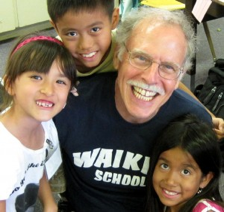 engaged in p4c activities for nearly fourteen years. Dr. Thomas Jackson, of the University of Hawai‘i, has worked to develop and sustain p4c at Waikiki School by actively facilitating p4c in the classroom at all grade levels (kindergarten- 6th grade), by recruiting philosophy graduate students from the University of Hawai‘i to work as facilitators in the classrooms, and by offering p4c professional development classes to the Waikiki faculty and staff. Roughly 90% of the faculty at Waikiki includes p4c in the curriculum. Most recently, Matthew Lawrence, a veteran p4c Hawai‘i teacher at Waikiki Elementary was recognized as the 2014 Hawai‘i State Teacher of the Year.
engaged in p4c activities for nearly fourteen years. Dr. Thomas Jackson, of the University of Hawai‘i, has worked to develop and sustain p4c at Waikiki School by actively facilitating p4c in the classroom at all grade levels (kindergarten- 6th grade), by recruiting philosophy graduate students from the University of Hawai‘i to work as facilitators in the classrooms, and by offering p4c professional development classes to the Waikiki faculty and staff. Roughly 90% of the faculty at Waikiki includes p4c in the curriculum. Most recently, Matthew Lawrence, a veteran p4c Hawai‘i teacher at Waikiki Elementary was recognized as the 2014 Hawai‘i State Teacher of the Year.p4c Hawai‘i first landed at Kailua High School in 2000 when Dr. Amber Makaiau began
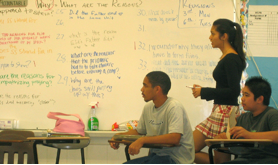 experimenting with it as an effective pedagogy within the Social Studies classroom during her student teaching. Its success remained within her four walls until 2004 when Chad Miller first brought it into the English department as an effective mode of instruction. Due to p4c Hawai‘i’s continued success with the students at Kailua High School, p4c Hawai‘i has become the foundation of each classroom in the English department, thus being the first high school p4c Hawai‘i department in the world. Additionally, the entire Ethnic Studies curriculum, which serves every student at Kailua High School, was created with the p4c Hawai‘i pedagogy at its core. While p4c Hawai‘i has most heavily been used in these two disciplines, with the support of principal Francine Honda, Dr. Benjamin Lukey served as Kailua High School’s Philosopher in Residence, bringing p4c Hawai‘i into the classrooms and curricula of teachers from other content areas. Currently, Dr. Chad Miller is the KHS Philosopher in Residence, working with more than 35 teachers in order to promote rigorous thinking and deeper student engagement.
experimenting with it as an effective pedagogy within the Social Studies classroom during her student teaching. Its success remained within her four walls until 2004 when Chad Miller first brought it into the English department as an effective mode of instruction. Due to p4c Hawai‘i’s continued success with the students at Kailua High School, p4c Hawai‘i has become the foundation of each classroom in the English department, thus being the first high school p4c Hawai‘i department in the world. Additionally, the entire Ethnic Studies curriculum, which serves every student at Kailua High School, was created with the p4c Hawai‘i pedagogy at its core. While p4c Hawai‘i has most heavily been used in these two disciplines, with the support of principal Francine Honda, Dr. Benjamin Lukey served as Kailua High School’s Philosopher in Residence, bringing p4c Hawai‘i into the classrooms and curricula of teachers from other content areas. Currently, Dr. Chad Miller is the KHS Philosopher in Residence, working with more than 35 teachers in order to promote rigorous thinking and deeper student engagement.Waimanalo Elementary and Intermediate School (WEIS)
With the support of the Principal, Noel Richardson, and former Vice-Principal, Garrett Arakawa, p4c Hawai‘i began officially working with WEIS in January of 2013. Dr. Benjamin Lukey, currently serving as the WEIS Philosopher in Residence, works with teachers and
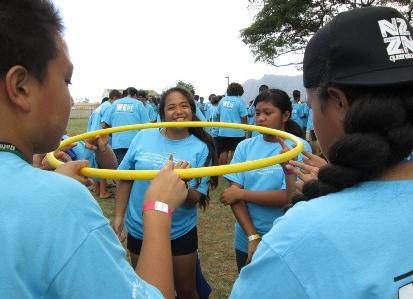 students from pre-K through 8th grade school to promote the creation of intellectually responsible communities of inquiry. Since the vast majority of WEIS students matriculate to Kailua High School, the expansion of p4c Hawai‘i at WEIS offers the opportunity for students to benefit from p4c from Pre-K through high school. In partnership with the UH Uehiro Academy, WEIS has received a major grant from the Hawai‘i Community Foundation (HCF) to support its Philosopher in Residence, p4c Hawai‘i Professional Development, p4c camps, and several other p4c-based initiatives at the school.
students from pre-K through 8th grade school to promote the creation of intellectually responsible communities of inquiry. Since the vast majority of WEIS students matriculate to Kailua High School, the expansion of p4c Hawai‘i at WEIS offers the opportunity for students to benefit from p4c from Pre-K through high school. In partnership with the UH Uehiro Academy, WEIS has received a major grant from the Hawai‘i Community Foundation (HCF) to support its Philosopher in Residence, p4c Hawai‘i Professional Development, p4c camps, and several other p4c-based initiatives at the school.KES is supported by Dr. Miller, Dr. Lukey, and the philoSURFERS.
- Uehiro Foundation on Ethics and Education
In order to meet the need for greater insight into ethical issues and their social consequences, Mr. Eiji Uehiro, a noted ethical leader in Japan, established the Uehiro Foundation on Ethics and Education (UFEE) in 1987. UFEE is and independent Public Interest Corporation based in Tokyo, Japan. The main goal of UFEE is to encourage research and public discussion about ethics and education and the inter-relationship between them. The UFEE has generously supported p4c Hawai‘i since 2005.
- The UH Uehiro Academy Faculty
DR. THOMAS JACKSON
Dr. Thomas Jackson (“Dr. J”) has been a member of the p4c Hawai’i family since 1984. He received his PhD in Comparative Philosophy from the University of Hawai’i in 1979. In 1980 he became a co-founder of the Hawai’i International Film Festival. In 1984 he discovered “Philosophy for Children” (P4C) and spent three weeks at a workshop at Montclair State University in New Jersey with other scholars from around the world. There he learned from P4C’s creator, Matthew Lipman, an inspiring approach to working with children, a provocative new way of thinking about philosophy and an exciting development in education. Since 1984 he has been passionately committed to the development of p4c in Hawai`i and around the world. In 1987 he became a full time Specialist with the Department of Philosophy, UH Mānoa and Director of the Philosophy in the Schools Project, a joint effort between the Department of Philosophy and the Hawai’i Department of Education. For 15 years the DOE funded philosophy department graduate students who worked in public school classrooms throughout the state of Hawai’i, assisting teachers in developing intellectually safe classroom communities of inquiry. The Philosophy in the Schools Project has been supplanted by the new p4c Hawai’i Center which is better able to handle the continued growth and demand for p4c. Dr. J works in classrooms with teachers and their students, regularly offers courses in p4c both on and off the UH Mānoa campus, serves on dissertation committees of students engaged in research on p4c in both the College of Arts & Humanities and in the College of Education in Hawai’i and students who come from abroad to study the p4c Hawai’i approach. Dr. J has been a conference and workshop presenter and keynote speaker locally, nationally, and internationally in China, Taiwan, Singapore, Japan, Brazil, Australia, Austria and Israel.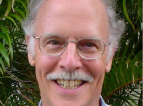
DR. BENJAMIN LUKEY
Benjamin Lukey received his doctorate in comparative philosophy from the University of Hawai‘i at Mānoa. His interests in philosophy of disability, comparative philosophy, and philosophy for children (p4c) have developed from his broader goal of including more voices in philosophical discourse. Since 2007, he has been part the p4c Hawai‘i initiative at the University of Hawai‘i at Mānoa, piloting and developing a Philosopher in Residence project at Hawaii public high schools. Dr. Lukey continues to support p4c Hawaii teachers and students at Waimanalo Elementary & Intermediate School, Kailua High School, Waikiki Elementary, Ka’elepulu Elementary, and the University of Hawai‘i at Mānoa. He is currently Associate Director for the UH Uehiro Academy for Philosophy and Ethics in Education.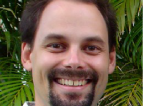
DR. AMBER STRONG MAKAIAU
Dr. Amber Strong Makaiau is a Specialist at the University of Hawaiʻi at Mānoa (UHM) College of Education Institute for Teacher Education Secondary Program, the Director of the Hanahauʻoli School Professional Development Center, Director of Curriculum and Research at the UHM Uehiro Academy for Philosophy and Ethics in Education, and the co-director of Progressive Philosophy and Pedagogy MEd Interdisciplinary Education, Curriculum Studies program. She has a BA in Psychology and Education from the University of California, Santa Cruz, a Masters in Education and Teaching from UHM, and a PhD in Curriculum and Instruction also from UHM. She is a dedicated practitioner of philosophy for children Hawai‘i who achieved National Board Certification while teaching secondary social studies in the Hawaii State Department of Education for over ten years. She is also an award-winning educator who achieved the Hawaii International Education Week Honolulu Advertiser 2004 Outstanding Global Educator Award, the 2005 Oceanic Outstanding Educator Award, the 2011 Teaching Tolerance Award for Excellence in Culturally Responsive Teaching, the 2016 C3 Teachers Inquiry Design Model Challenge Award, and the 2017 National Council for the Social Studies College and University Faculty Assembly Kipchoge Neftali Kirkland Social Justice Paper Award. Her current projects include carrying out progressive, multicultural, social justice, and democratic approaches to teacher education, conducting self-study and other qualitative research, and building the progressive education movement locally, nationally, and internationally. Some of her recent publications that reflect this work are: Cultivating and Nurturing a Positive School Culture and Climate: Impacts of Philosophy for Children Hawai‘i at Waikiki Elementary School (2021); The Good Thinker’s Toolkit: Engaging Critical Thinking and Reasoning in Secondary Education (2021); Ethnic Studies Now! Three Reasons Why Ethnic Studies Should be a Requirement for Graduation in the United States (2019), Philosophy for Children: A Deliberative Pedagogy for Teaching Social Studies in Japan and the USA (2018); A citizen’s Education: The philosophy for children Hawai‘i Approach to Deliberative Pedagogy (2017); Empowering Global P4C Research and Practice Through Self-Study: The philosophy for children Hawai‘i International Journaling and Self-Study Project (2017); From School-Culture-to-Family-Culture: Reflections on four Generations of a Deweyian Education in Hawai‘i (2015); and the C3 Teacher Brief Cultivating and Nurturing Collaborative Civic Spaces (2015).
More from Dr. Makaiau
Follow the work of Dr. Makaiau on Progressive Philosophy and Pedagogy: A Blog for Progressive Educators, an online thinkspace, where progressive philosophers and practitioners from across the globe can connect through community and inquiry to carry out the movement’s important commitment to the intersection of democracy and education.
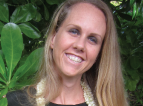
DR. CHAD MILLER
Dr. Chad Miller is the 2012 Hawaiʻi Teacher of the Year, a National Board Certified teacher, and is currently an Associate Specialist at the University of Hawaiʻi at Mānoa’s Institute for Teacher Education. Dr. Miller also serves as the Director of Teacher Development at the University’s Uehiro Academy for Philosophy and Ethics in Education and in this “hybrid” role, he teaches Language Arts methods courses, as well as “Philosophy for Children (p4c)” courses in the College of Education to secondary teacher candidates. He also serves as a Philosopher in Residence, where he collaborates with and supports teacher candidates and veteran K-12 teachers as they incorporate the activity of philosophy into their classroom practice through the use of the “Philosopher’s Pedagogy.” Regardless if he is thinking about the environmental implications of “driving” clouds with third graders, the cyclical nature of violence and drug abuse with sophomores in their Language Arts classes, or the value of living the “examined life” with undergraduates, Dr. Miller finds himself participating in extremely meaningful and rigorous philosophical inquiries with students and teachers each day.
Dr. Miller received his BA in philosophy from John Carroll University and PhD in education at the University of Hawaiʻi at Mānoa. His dissertation, Philosophy Goes To High School; An Inquiry into the Philosopher’s Pedagogy, examines philosophy’s absence from the American high school experience, provides a pedagogical framework to bring philosophy into our subject-centered classrooms, and analyzes the student experience when philosophy is used as an approach to teaching. Chad continues to present the findings of his work concerning philosophy’s application to classroom instruction at numerous domestic and international academic conferences.
More from Dr. Miller:
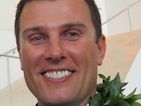
DR. MITSUYO TOYODA
Dr. Mitsuyo Toyoda has been part of the p4c Hawai’i family since 2004. After completing her Masters in Philosophy at the University of Hawai’i in 2006, Mitsuyo worked on her Doctorate at Tokyo Institute of Technology in Japan until 2009. The focus of her research has been incorporating p4c ideas and methods into public environmental decision-making. Dr. Toyoda also coordinates the p4c Japan-Hawai’i Exchange Program in collaboration with the Uehiro Foundation on Ethics and Education. This program, which has been held twice a year in summer since 2006, provides wonderful opportunities for schoolteachers from Japan and Hawai’i to experience the cultural diversity in education and to learn deeply about p4c Hawai’i activities. Dr. Toyoda is currently teaching environmental education at the University of Hyogo in Japan.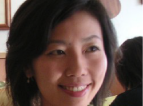
DR. THOMAS YOS
Dr. Thomas “Toby” Yos is an assistant specialist with the University of Hawai‘i Uehiro Academy for Philosophy and Ethics in Education. Arriving at the University of Hawai‘i in 1991, Dr. Yos studied under philosophy for children Hawai‘i founder Dr. Thomas Jackson and received a doctoral degree in Philosophy. Since that time Dr. Yos has been working in Hawai‘i’s schools. Over the course of the past three decades he has mentored hundreds of teachers and done p4c with thousands of students.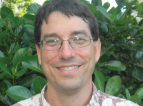
DR. TAMMY JONES
Dr. Tammy Jones is a Project Coordinator for PALS/PLACES at the University of Hawaiʻi at Mānoa, supporting teachers on the Waiʻanae Coast to develop place-based curriculum. She is also the curriculum developer and co-facilitator of Try Think, a program run in the state correctional facilities and sponsored by the Hawaiʻi Council for the Humanities. Tammy spent the first ten years of her career in education as an English teacher and Literacy Coach at James Campbell High School in ʻEwa Beach. In 2014 she transitioned into the role of middle school teacher at the School for Examining Essential Questions of Sustainability (SEEQS), a public charter school focused on examining essential questions of ecological systems. Since beginning her graduate studies at UHM in 2003, Tammy has worked closely with Dr. Thomas Jackson and the Uehiro Academy for Philosophy and Ethics in Education to promote the Philosophy for Children Hawaiʻi (p4cHI) approach to thinking and learning. She earned her MEdT in 2005 and her PhD in Curriculum Studies in 2012, both from the University of Hawaiʻi at Mānoa.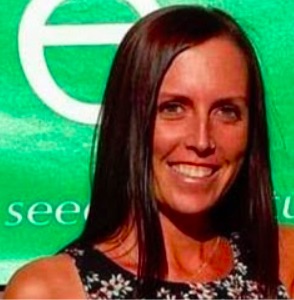
AYA WATANABE
Aya Watanabe is a doctoral student at the UHM College of Education, Educational Foundations. She came to Hawai’i to experience p4cHI in 2013 as her first time. The experiences transformed her life, and she is currently working with teachers at Waikiki School and Kailua High School. She also works as a connector between educators in Hawaii and Japan.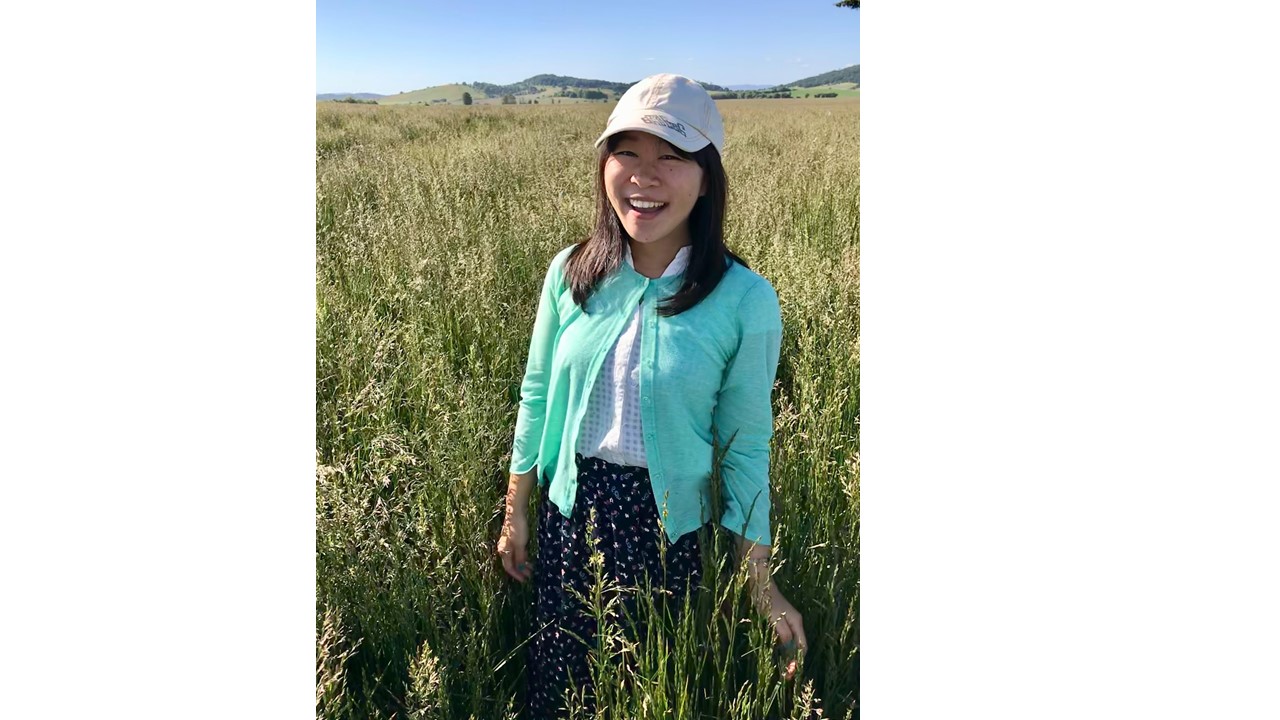
SCOTT ALLEN
Scott Allen, known by many as “CAPT. Cloudwatcher,” is a Master’s student in Urban and Regional Planning at the University of Hawaiʻi at Mānoa. His research interests explore how ideals of community planning and development can be combined with p4c Hawaiʻi to enrich K-12 curricula and purposively influence young people toward creating a more aware, empowered, and active citizenry—the bedrock of sound urban governance.